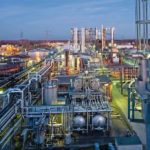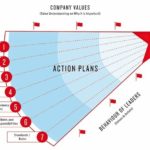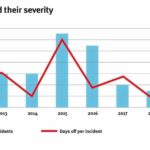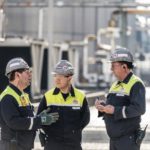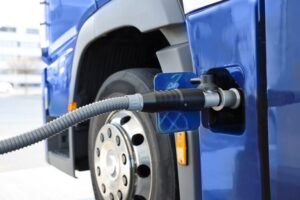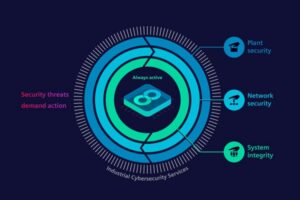Massimiliano Martino, Vice President Global Safety, Health and Environment at Rain Carbon, knows the reasons for investing in safety: “To be successful, Rain Carbon has to be a world-class performer in terms of safety. We cannot compromise when it comes to safety and we can only move forward as fast as our progress as regards safety initiatives and activities.” Rain Carbon’s total recordable injury rate is currently less than 0.4. This is a remarkable achievement, but the company will only be satisfied with zero incidents. “We have therefore put in place stringent programmes and KPIs (key performance indicators) to monitor and reduce all types of incident. We must do our utmost to safeguard communities, employees and the environment in order to deliver on our commitments as a responsible company”, Martino explains. For him, safety is clearly one of the building blocks for success. “It allows us to increase our productivity and operational discipline and it will also add value on the path to truly organic growth.”
Project launch in Germany
Under the direction of Dr. Günther Weymans, Executive Vice President Carbon Distillation and Advanced Materials, Rain Carbon determined in 2016 that its facilities around the world needed to develop a more mature and sustainable safety culture. The company sought assistance from a safety and operations management consultancy with significant experience in the chemical industry: Dupont Sustainable Solutions (DSS). Rain Carbon began the cultural transformation project at its largest site, the distillation and advanced materials production facility in Castrop-Rauxel, Germany. The total recordable incident rate there had become caught in a cycle where the number of incidents gradually decreased, crept up again, then declined once more without ever completely flattening out.
“It had grown more and more obvious that our culture did not promote independent, safe decision-making”, recalls Elke Helck, then Site Manager. “Instead of pursuing a risk-free course of action themselves, people relied on rules and regulations to keep safe.” The management and their employees had widely diverging views on safety. It was clear something had to change, but what?
Taking back ownership
An initial assessment by DSS of the status quo at the plant confirmed what Rain Carbon had suspected. The prevailing safety culture was highly dependent on discipline, controls and monitoring to prevent incidents, whereas Rain Carbon needed its entire workforce and management to have a more independent mindset if it wanted to achieve a sustainable change in safety performance. Only personal engagement, increased accountability for each employee’s area of responsibility and a change in attitude toward individual safety would move the plant forward and closer to its goal of zero accidents.
“What we didn’t realise”, Helck admits, “is that you don’t just buy a consulting service and they do everything for you. You have to do things yourself and change. That was quite a hard lesson to learn. But we would never have managed it on our own. We discovered that managers have to leave their offices and go out into the production shops where the risks are highest. It was incredibly helpful to walk around the site with a DSS consultant, spotting unsafe activities and learning how to address them in a positive way. The consultant would ask really simple questions.”
“Initially, employees would react by saying ‘I have to check if there is a rule for that’”, Helck continues. “DSS gently nudged them to start thinking for themselves. This approach allowed us to take back ownership of our plant. At first, people were rather perplexed and sceptical. They naturally want to produce more, to be proud of what they have achieved and receive praise. It took time for them to understand that we were not checking up on them and that we mean it when we say ‘safety first’. We’ve had so many safety campaigns in the past that people were a bit weary and wary of them. But we’ve sent strong signals that we’re serious about safety – such as stopping production for safety reasons or investing in training – and I continue to push managers out into the plant, as that is the only way to get everyone involved in safety.”
Structural changes
In addition to the initial assessment, which included a survey of employees’ safety perceptions and help with safety observation training (STOP), Rain Carbon and DSS came up with a two-year implementation plan with prioritised short- and medium-term goals and identified a number of quick wins. The transformation of the site culture was planned at a joint strategy workshop that analysed such issues as what had to change and when as well as who had to change and how, with clearly defined responsibilities. This led to an action plan developed collaboratively by Rain Carbon and DSS, which considered the site’s starting point and ultimate objective. DSS helped Rain Carbon to determine the actions which would be necessary to move the site from one to the other and ensure the company took a realistic view of the plant’s readiness for change. A safety steering committee and support structure were established to enable the action plan to be implemented. DSS furthermore assisted with coaching for senior management in addition to workshops to develop management and employee capabilities.
Insights
Management at the site has noticed a great change since work with DSS began in 2016. Thomas Tulkens, former Global Safety Manager at Rain Carbon, says that lagging indicators and housekeeping have improved and levels of engagement and involvement in safety are higher, as is visible management commitment. “The culture is much more open and people are more willing to discuss behaviour”, he claims. “That wasn’t the case four years ago.”
Change has not only affected production at the Castrop-Rauxel site; the impact can be seen in the administrative offices as well. Thomas Müchler, the recently retired Vice President Corporate Accounting & Tax, admits he initially didn’t understand what safety had to do with administration. Nor did many of the 80 to 90 employees who took part in the workshop for administrative staff. Yet after that workshop, the feedback he received was entirely positive. “We have come to realise that safety has many different aspects and I think we’ve all become far more proactive,” he continues. He cites initiatives that employees in his department have organised, such as safety training for drivers of company cars and activities to improve safety on the way to work.
Massimiliano Martino is clear on this issue. “We come from a top-down culture. Our mindset is still conservative, but we are introducing digitalisation and steering committees to enable us to communicate, think and act quicker in relation to all aspects of safety. We need agility because timing is critical with 24/7 operations across different continents and time zones. I am very ambitious and want faster and bigger changes for the success of the company, but if we shake people up too much, they vibrate. Since we started working with DSS, the changes have been positive and progress has been fast. Perhaps even more important, the impact is sustainable at all levels of the organisation so that real value is added. Thanks to DSS, our safety culture has improved to become more active. However, we are not yet proactive enough. I believe that we need to continue accelerating with maximum energy to create the highest possible momentum and achieve safety excellence. We will then see a reduction in all incidents globally with stronger organic growth for Rain Carbon.”
Conclusion
This is a clear signal to Rain Carbon’s senior management that change is here to stay. Today, managers at the Castrop-Rauxel site not only track safety performance differently from before with a wider range of KPIs; they also share what is happening at the German plant with employees at other Rain Carbon production facilities and offices around the world, so they too can benefit from the lessons learned during the Castrop-Rauxel pilot project.
Dupont Sustainable Solutions, Frankfurt, Germany



